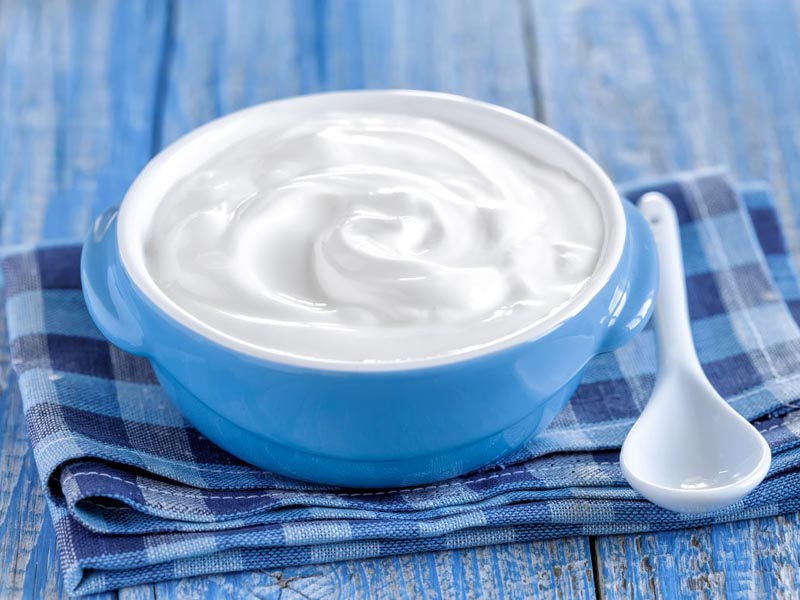Many people ask me, if curd can be eaten during winters or not!!
My answer always is Yes, surely, everyday one can have curd!!!
Curd has all the nutritional qualities of milk and then some more!!
Curd is made by the process in which milk is curdled with the help of live bacteria. Most of the benefits of curd are due to the presence of these live bacteria. Curd is the richest form of probiotic improving the gut microflora.
So, let us know why one should have curd daily:
- These bacteria are Lactobacillus acidophilus, Lactococcus lactis, Lactococcus lactis cremoris etc. These bacteria are helpful in improving the gut microflora and gut immunity. Our gut is the largest immune organ in the body and a healthy gut is essential in maintaining overall health.
- It can even be consumed by people who are lactose intolerant and therefore are not able to consume most of the foods made with milk. The bacteria in curd breakdown the lactose sugar present in curd making it a “pre-digested food”
- The bacteria present in curd act as free radical scavengers and are helpful in weight management, even help in managing blood sugar levels in people suffering from Type 2 Diabetes Mellitus and have also been shown to improve cardiovascular health.
- The lactobacilli in curd have antimicrobial effect, they dammage the DNA of the harmful microbes entering the gut and help by rapidly killing them.
- Good source of vitamin B12 especially for vegetarians and a rich source of calcium, phophorus and magnesium which are important for their roles in bone mineralization.
- Being a good source of calcium and other minerals, it plays and important role on bone growth and bone and teeth minrelization and also is helpful in reducing osteoporosis.
- It can be eaten both during diarrohea and during constipation. During diarrhoea milk is not absorbed. Curdcan be consumed as it is a predigested food also, taking it with psyllium husk is effective in binding the stools. It is helpful in improving bowel movement. So, people suffering from constipation should have it to decrease the transit time and improve bowel functioning.
Nutritional Facts about curd
1 cup (245 gm) fat free curd contains:
- Calories – 137 kcal
- Fat- 4 gm
- Protein- 14 gm
Vitamin B 12 – 25% of daily requirement
- Calcium -488 mg about 48% of the total daily requirement both are required for bone mineralization
- Phosphorus – 385 mg about 35% of total daily requirement
It also has good quantity of Vitamin B6, B2 (riboflavin), folate and pantothenic acid
And sodium, potassium and also zinc.
Now whether it should be eaten during winters or not?
Yes, sure it can be consumed during winters. Only thing that needs to be taken care if one is allergic to cold foods, it should not be refrigerated and consumed fresh.
| Many a times people say, curd is cold. First of all, if it is not refrigerated it will not be cold and secondly during the process of curdling a lot of heat is generated, which helps in the process of curdling. And therefore, I believe it is not naturally cold. |

An Article By:
Sunita Roy Chowdhury
Nutritionist @ HealthyNudgez


